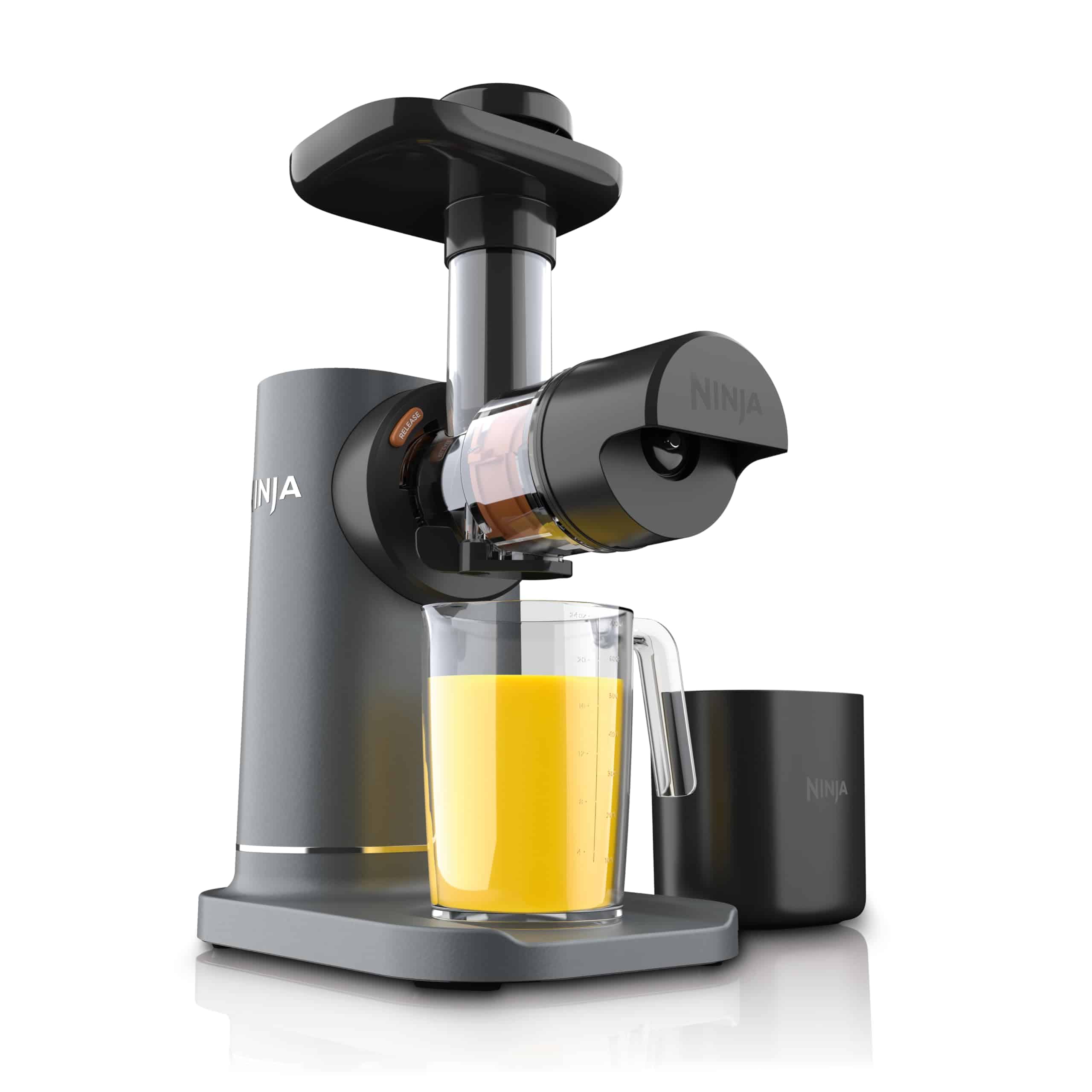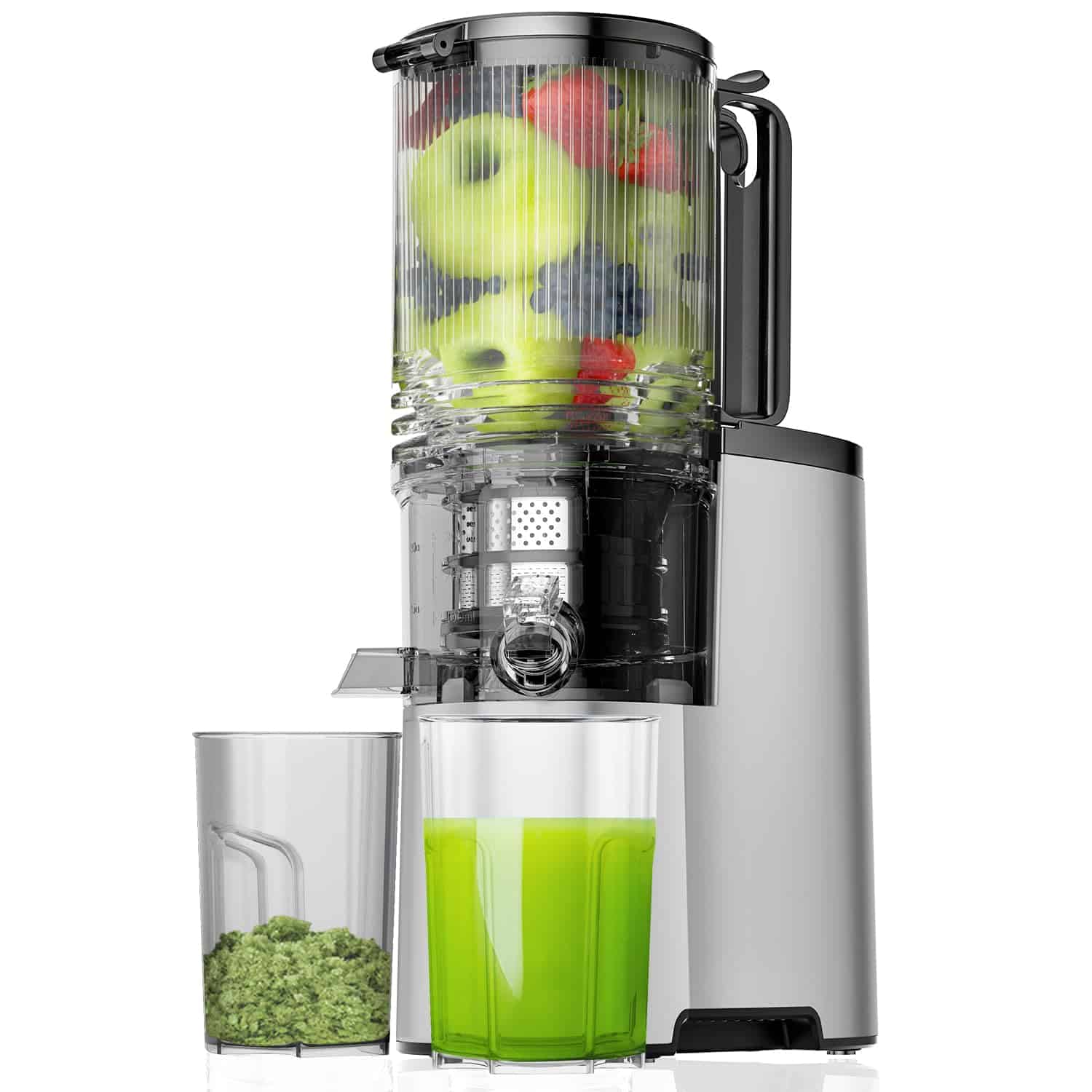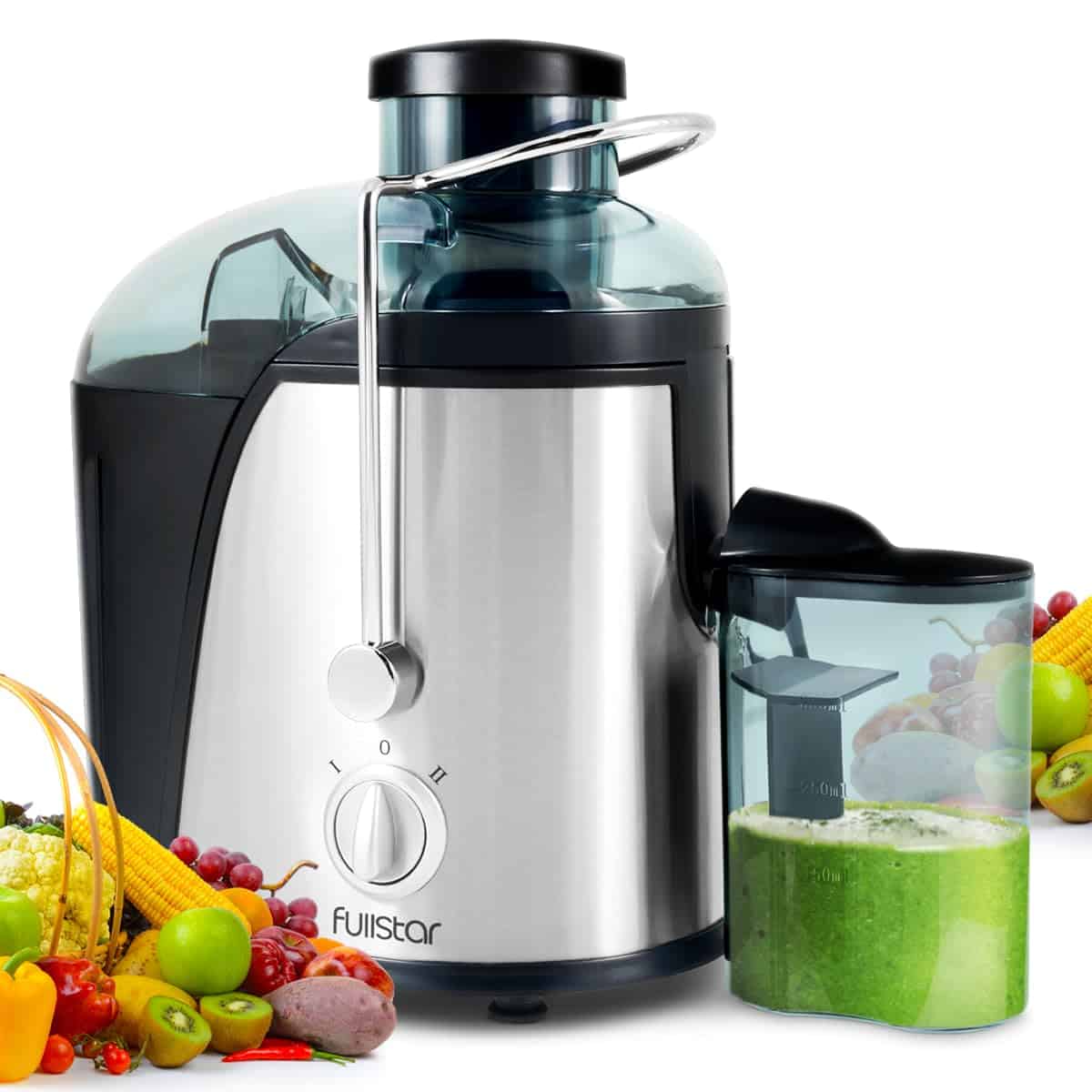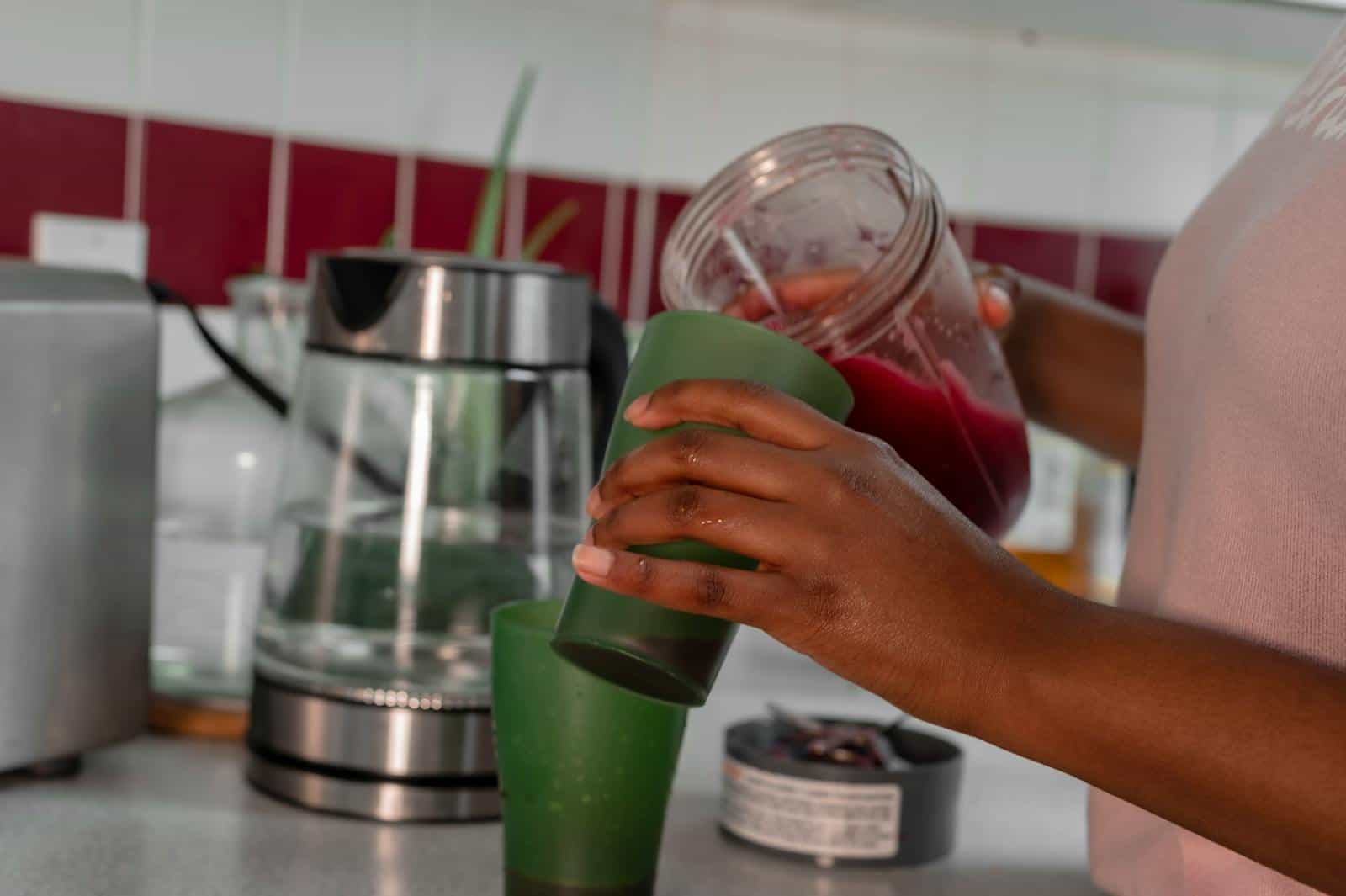Fresh juice has made a serious comeback—and not just in trendy cafés or overpriced cleanse kits. With more people looking to boost immunity, reduce processed sugar, and get real nutrients into their diets, juicer machines have become kitchen essentials. A good juicer can turn your everyday fruits and veggies into delicious, vitamin-packed drinks that support digestion, energy levels, skin health, and even weight management.
But not all juicers are created equal. The latest generation of juicer machines in 2025 includes improvements in noise reduction, juice yield, cleanup simplicity, and nutrient retention. Whether you’re new to juicing or looking to upgrade your old machine, understanding the different types of juicers and their specific advantages is key to choosing the right one for your lifestyle.
Types of Juicers Explained
Modern juicers generally fall into three categories: centrifugal, masticating (cold press), and twin-gear. Here’s how they differ:
- Centrifugal Juicers: These high-speed machines use spinning blades to quickly shred produce and separate juice from pulp via centrifugal force. They’re great for hard fruits and veggies and are ideal for beginners because they’re fast and affordable—but the tradeoff is slightly lower juice yield and more foam.
- Masticating Juicers: Also called cold press juicers, these machines slowly crush and press fruits and veggies to extract juice without generating much heat, which preserves more nutrients and enzymes. They’re more efficient, quieter, and produce higher-quality juice, especially from leafy greens.
- Twin-Gear (Triturating) Juicers: The most expensive and complex of the bunch. These use two gears to crush produce and are known for their top-tier juice quality and extraction yield. They’re perfect for serious juicers and those who want the most from every ounce of produce.
There’s also been a rise in vertical slow juicers and hybrid models in 2025 that combine masticating extraction with user-friendly features like one-touch cleaning, adjustable pulp filters, and noise-reducing motors. Juice shelf life and nutritional integrity are better than ever, making juicing less of a hassle and more of a habit.
What to Look for When Buying a Juicer in 2025
Today’s juicers pack more tech into smaller frames. Key factors to keep in mind when buying include:
- Motor Power: Anything between 400-1000 watts is sufficient for most home uses. Lower-powered models are quieter but may struggle with harder produce.
- Feed Chute Size: Wider chutes (3+ inches) reduce prep time by allowing you to insert whole apples, beets, or oranges without chopping.
- Ease of Cleaning: Many models now include dishwasher-safe parts and self-cleaning functions. Bonus points if they come with a brush for strainer cleanup.
- Pulp Control: Adjustable filters let you choose how much pulp you want in your juice—a huge perk for picky drinkers.
- Noise Levels: Centrifugal models are louder, but some new masticating juicers operate at whisper-quiet levels around 40-60 dB, perfect for early mornings.
In our hands-on tests, we evaluated juice yield, texture, speed, and cleanup time using common ingredients like carrots, apples, spinach, celery, and beets. From compact countertop machines to full-featured cold press units, here are our top juicer picks for 2025:
Best Juicer Machines of 2025
| Rank | Product Name | Price |
|---|---|---|
| 1 | Hamilton Beach Big Mouth Juicer | Click For Price |
| 2 | Magic Bullet Mini Juicer | Click For Price |
| 3 | JoyBear Cold Press Juicer | Click For Price |
| 4 | Ninja NeverClog Cold Press Juicer | Click For Price |
| 5 | EanOruus Cold Press Juicer | Click For Price |
| 6 | ECOSELF Cold Press Juicer | Click For Price |
| 7 | Ter Cold Press Juicer | Click For Price |
| 8 | TUUMIIST Cold Press Juicer | Click For Price |
| 9 | Fullstar Compact Juicer | Click For Price |
| 10 | YPONE Cold Press Juicer | Click For Price |
Juicer Buying Guide for 2025
Price Ranges
Juicers generally fall into three pricing tiers:
- Basic ($50–100): Great for beginners, usually centrifugal models with fewer features.
- Mid-range ($100–300): Includes solid cold press juicers, better durability, and user-friendly extras.
- Premium ($300+): Offers high juice yields, quiet motors, multiple filters, and longer warranties.
Materials & Durability
Look for BPA-free components, stainless steel mesh filters, and durable plastic or metal housings. Many juicers now offer 10+ year warranties on motors—an excellent sign of quality.
Juice Quality & Shelf Life
Masticating juicers produce juice that lasts up to 72 hours with minimal nutrient degradation, especially when stored in airtight glass containers in the fridge. Centrifugal juice, by contrast, should be consumed quickly due to higher oxidation.
Noise & Convenience
Cold press models can run as quiet as 40 dB, while centrifugal juicers can push 80 dB. If you’re making juice early in the morning or in shared spaces, noise should be a major consideration.
Final Thoughts
Whether you’re building a healthy morning routine or adding more greens into your diet, a quality juicer can make the process easier and more enjoyable. With this 2025 guide, you’re equipped to find the right machine—whether you value speed, quiet operation, compact size, or the highest juice yield possible. From entry-level centrifugal models to quiet masticating beasts, there’s something here for every budget and kitchen.
Best Juicer Machines
We have tested and reviewed the top juicers to create this list of the best options available today. Our research focuses on factors like juice yield, ease of cleaning, noise levels, and durability to help you select a juicer that matches your needs and budget.
Hamilton Beach Big Mouth Juicer

This affordable juicer delivers excellent value with its powerful motor and wide feed chute, making it perfect for beginners and casual juicing enthusiasts.
Pros
- Extra-wide 3-inch chute fits whole fruits
- Powerful 800W motor extracts juice efficiently
- Simple to clean with dishwasher-safe parts
Cons
- Fairly noisy during operation
- Takes up significant counter space
- Some produce requires pre-cutting despite large chute
We tested this juicer with various fruits and vegetables, and the 800-watt motor handled everything from soft oranges to tough carrots with ease. The wide feed chute saved considerable prep time by accepting whole apples and large chunks of produce.
The stainless steel cutting disc and mesh filter extract juice effectively, leaving behind relatively dry pulp. During our testing, we noticed minimal waste when juicing common items like carrots, apples, and celery. The juice comes out smooth with minimal foam.
Clean-up proved straightforward thanks to the dishwasher-safe components. The included cleaning brush helps remove pulp from the mesh strainer. The large pulp bin means less frequent emptying during big juicing sessions.
The black plastic construction feels sturdy and durable. While the unit runs loudly, this is typical for centrifugal juicers in this price range. The non-slip feet keep it stable during operation.
Magic Bullet Mini Juicer

The Magic Bullet Mini Juicer delivers excellent value with its compact design and efficient juicing capabilities, making it perfect for small households and beginners.
Pros
- Compact size fits easily on countertops
- Simple to clean with dishwasher-safe parts
- Wide 2-inch feed chute reduces prep time
Cons
- Limited 16oz capacity
- Motor noise is noticeable
- Pulp can be slightly wet
We tested this juicer extensively in our small kitchen, and its space-saving design impressed us immediately. The 400-watt motor handled carrots, apples, and leafy greens with surprising efficiency for its size.
The included 16-oz cup with to-go lid proved incredibly practical during our morning routine. We appreciated being able to juice directly into the cup and take it with us without extra transfers or cleanup.
Setup takes mere minutes, and the cleaning process is straightforward. The silicone spout cap prevented juice drips on our counter, and the dishwasher-safe components made cleanup quick. Small families and single users will find this juicer meets their daily needs without overwhelming counter space.
JoyBear Cold Press Juicer

We recommend this affordable masticating juicer for its extra-wide feed chute and efficient juice extraction that delivers excellent value for home juicing needs.
Pros
- Extra-wide 5.3″ chute fits whole fruits
- Quick 5-minute cleanup with included brush
- Produces high-quality juice with minimal foam
Cons
- Takes longer than centrifugal juicers
- Can struggle with very fibrous greens
- Limited 200W motor power
The first thing we noticed was how much time this juicer saved us during prep work. Its generous 5.3-inch feed chute swallowed whole apples and large chunks of produce without requiring extensive pre-cutting.
During our testing, the slow masticating process extracted juice efficiently while keeping heat and oxidation low. The juice came out smooth with minimal separation and foam. We appreciated the reverse function when dealing with tougher ingredients like carrots.
Cleanup proved surprisingly simple with the one-piece design. The included cleaning brush reached tight spots effectively, and all parts came apart easily. The safety lock feature gave us peace of mind, automatically stopping operation if the lid opens during use.
This 200W motor runs quietly compared to louder centrifugal models. While processing speeds are slower, the juice quality makes up for the wait. The titanium-enhanced auger handled most produce well, though very fibrous greens occasionally needed extra attention.
Ninja NeverClog Cold Press Juicer

We recommend this juicer for its efficient cold-press technology, customizable pulp control, and easy cleaning features.
Pros
- Extracts maximum juice from fruits and vegetables
- Two pulp filter options for texture preferences
- Quiet operation compared to centrifugal juicers
Cons
- Requires produce to be cut into small pieces
- Limited 24-ounce juice capacity
- Takes more time than high-speed juicers
The cold-press mechanism works smoothly to extract juice while preserving nutrients. We found the slow-speed auger squeezes fruits and vegetables thoroughly, leaving remarkably dry pulp behind.
Two interchangeable filters let us adjust the amount of pulp in our drinks. The “Less Pulp” filter creates smooth juice, while “Lots of Pulp” adds healthy fiber. The anti-drip spout prevents mess between glasses.
The 150-watt motor runs quietly enough for early morning juicing without waking the household. Cleanup takes minutes since all removable parts go in the dishwasher. The compact design fits neatly on countertops or stores easily in cabinets.
EanOruus Cold Press Juicer

We recommend this juicer for its excellent juice yield and wide feed chute that makes quick work of whole fruits and vegetables.
Pros
- Extra-wide 5.4-inch feed chute fits whole produce
- Minimal oxidation preserves nutrients
- High juice yield with dry pulp
Cons
- Motor makes some noise during operation
- Takes up significant counter space
- Hand washing required for all parts
The 400W motor tackles tough ingredients like carrots and beets with ease. We noticed minimal heat buildup during operation, which helps preserve the nutritional content of our fresh juice. The double-layer filtration system separates pulp effectively.
Our testing showed impressive results with leafy greens. The slow masticating process extracts juice thoroughly, leaving behind dry pulp. We appreciate the safety features, including the requirement to align the handle with the start button before operation.
The juice comes out smooth and foam-free thanks to the 7-stage spiral auger. Clean-up takes some time since the parts aren’t dishwasher safe, but the included cleaning brush makes the process manageable. For home juicing, this machine delivers professional-grade results at a reasonable price point.
ECOSELF Cold Press Juicer

We recommend this juicer for its generous 4.35-inch feed chute, high juice yield, and user-friendly design that makes daily juicing effortless.
Pros
- Extra-wide feed chute fits whole fruits
- Compact size saves counter space
- Simple one-button operation
Cons
- Motor runs slightly loud
- Limited 1.2L capacity
- Takes time to process harder vegetables
The large feed chute transformed our juicing routine. We put whole apples and oranges straight in without pre-cutting, saving precious morning minutes. The compact design fits neatly on our counter while still handling family-sized juice batches.
During testing, we noticed excellent juice extraction from soft fruits and leafy greens. The slow masticating process preserved nutrients and reduced foam, producing smooth, pulp-free juice. The reverse function quickly cleared any clogs from fibrous vegetables like celery.
Cleanup proved quick with the integrated hopper design. We appreciated the included cleaning brush for scrubbing the filter screen. The parts came apart easily and were dishwasher-safe except for the motor base. The safety lock feature prevented accidental starts, making it child-friendly in our kitchen.
Ter Cold Press Juicer

We recommend this juicer for anyone seeking a quiet, efficient machine that handles whole fruits and produces high-quality juice with minimal prep work.
Pros
- Extra-wide 4.8″ feed chute fits whole fruits
- Extremely quiet operation at 60 decibels
- 90% juice yield preserves nutrients
Cons
- Takes up significant counter space
- Hand wash only components
- Higher price point than centrifugal juicers
The large feed chute makes a noticeable difference in our morning routine. We can drop in whole apples and large chunks of produce without spending time pre-cutting everything. The pulp comes out remarkably dry, showing just how efficiently this machine extracts juice.
Clean-up impresses us with its simplicity. The components come apart easily, and the included brush helps scrub away pulp quickly. We appreciate the safety lock feature that prevents the motor from running if the lid isn’t secured properly.
The slow masticating action produces smooth, foam-free juice with vibrant flavor. During our tests, leafy greens and soft fruits processed equally well. The triple-layer filter catches even tiny bits of pulp, creating juice with a silky texture.
TUUMIIST Cold Press Juicer

We recommend this juicer for its extra-wide chute and efficient cold-press technology that delivers high-quality juice with minimal effort.
Pros
- 5.3-inch feed chute fits whole fruits
- Quick 5-minute cleanup time
- Silent operation at 43 RPM
Cons
- Pulp can get stuck in corners
- Slower juicing speed than centrifugal
- Limited to 300 watts power
The generous 5.3-inch feed chute sets this juicer apart from standard models. We found we could drop in whole apples and cucumbers without pre-cutting, which saved significant prep time during our morning juice routine.
Clean-up impressed us with its simplicity. The one-piece design comes apart in seconds, and the included brush reaches tight spots effectively. We managed to clean everything in about 5 minutes, though some pulp did collect in corner areas.
The slow 43 RPM motor preserves nutrients while operating quietly. During testing, we noticed minimal oxidation in our juices, which stayed fresh for longer compared to high-speed juicers. The cold-press method yielded noticeably more juice from leafy greens and soft fruits.
The mirror satin finish looks sleek on our counter, and the compact 8x8x17-inch footprint doesn’t monopolize space. We appreciated the safety features, including an automatic shutoff when the lid opens.
Fullstar Compact Juicer

The Fullstar 400W Juicer offers excellent value with reliable performance and easy cleaning features at an affordable price point.
Pros
- Wide 3-inch feed chute handles large fruit pieces
- Dual speed settings for different types of produce
- Safety lock and overheat protection
Cons
- Noisy operation
- Pulp can get stuck in filter basket
- Small juice container capacity
We tested this compact juicer extensively with various fruits and vegetables. The dual-speed motor adapts well to different produce types – slower speeds work great for soft fruits while higher speeds efficiently process harder vegetables like carrots.
The juice extraction rates impressed us during testing. We achieved about 70% yield from apples and 55% from oranges. The leftover pulp came out fairly dry, indicating good extraction efficiency. The filter mesh did an excellent job separating juice from pulp.
The cleaning process takes just a few minutes. Most parts go straight into the dishwasher, though we recommend hand washing the filter basket to maintain its performance. The included cleaning brush helps remove pulp from the mesh screen effectively.
Safety features gave us peace of mind during operation. The lock arm prevents the juicer from running without proper assembly, and the overheat protection kicked in appropriately during our extended juicing sessions. The non-slip feet kept the unit stable on our counter.
YPONE Cold Press Juicer

We found this efficient cold press juicer delivers exceptional value with its large feed chute and high juice yield.
Pros
- Extra-wide 5.8-inch chute fits whole fruits
- Dual filtration system prevents pulp
- Simple 3-part assembly saves time
Cons
- Takes up significant counter space
- Heavier than comparable models
- Hand washing required for all parts
The titanium gray finish gives this juicer a premium look that matches modern kitchen aesthetics. Its 350W motor runs at a slow 55 RPM, which preserves nutrients and reduces oxidation in fresh juices.
We tested this machine with various produce combinations. The dual strainer system impressed us by delivering smooth juice without excess pulp. The 0.3mm mesh filtered out even the finest particles while maintaining a 99% juice yield.
The safety lock feature stopped the machine instantly when we opened the lid. Cleaning proved straightforward with the included brush, though hand washing all components took extra time. The side vents prevented overheating during our extended juicing sessions.
Multiple air vents kept the motor cool during our batch juicing tests. The durable construction felt solid, and the push rod made it safe to feed ingredients while operating. We appreciated the quiet operation compared to centrifugal juicers.
Buying Guide
When selecting a juicer machine, power rating plays a crucial role. A motor with 400-1000 watts provides enough strength for most home juicing needs.
The type of juicer affects your juice quality and preparation time. Centrifugal juicers work fast but generate heat, while masticating juicers preserve more nutrients and work slower.
Consider the feed chute size – wider chutes (3+ inches) reduce prep time since fruits and vegetables need less cutting. Smaller chutes require more preparation but can be safer to use.
The noise level varies between juicer types. Centrifugal models run at higher decibels, while masticating juicers operate more quietly.
Essential Features to Check:
- Pulp container capacity
- Easy-clean components
- Safety locking mechanism
- Non-slip feet
- Dishwasher-safe parts
- Juice container size
We recommend looking at the warranty period and availability of replacement parts. A solid warranty of 5-10 years indicates manufacturer confidence in their product.
Storage space matters too. Measure your counter space and cabinet height before purchasing. Some juicers can be quite tall or bulky.
Price ranges typically fall into these categories:
| Category | Price Range |
|---|---|
| Basic | $50-100 |
| Mid-range | $100-300 |
| Premium | $300+ |
Look for BPA-free materials in all components that contact food or juice. This ensures safer, healthier juicing.
Frequently Asked Questions
Juicer machines offer various features, benefits, and considerations that affect their performance and value for different users.
What are the advantages of owning a juicer machine?
A juicer machine lets us extract maximum nutrients from fruits and vegetables in their raw form.
We can make fresh juice whenever we want, saving money on store-bought alternatives.
Juicing helps us incorporate more produce into our diet, especially vegetables we might not normally eat.
How does a cold press juicer differ from other types of juicers?
Cold press juicers crush and press produce at low speeds, preserving more nutrients and enzymes.
These machines produce less heat during operation, which helps maintain the juice’s natural color and flavor.
The slow extraction process yields more juice from the same amount of produce compared to centrifugal juicers.
What should be considered when selecting a juicer for home use?
Price range and budget will determine the available options and features.
Counter space and storage requirements vary significantly between different juicer models.
The types of produce we plan to juice affects which machine will work best for our needs.
What are the common drawbacks of using a juicer machine?
Cleaning juicers takes time, with some models having multiple parts that need thorough washing.
Quality machines can be expensive, with prices ranging from $100 to over $500.
Some juicers can be noisy, especially centrifugal models that operate at high speeds.
How does a centrifugal juicer compare to a masticating juicer in terms of efficiency?
Centrifugal juicers work faster but extract less juice from leafy greens and soft fruits.
Masticating juicers are more efficient with all types of produce but operate more slowly.
The juice from masticating juicers has a longer shelf life due to less oxidation during the extraction process.
Where can one find reliable reviews for different juicer machines?
Consumer Reports provides unbiased testing and comprehensive reviews of various juicer models.
We can find detailed user reviews on major retail websites like Amazon and specialty kitchen stores.
Professional cooking and health websites often publish in-depth juicer comparisons and recommendations.







